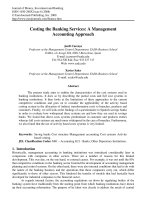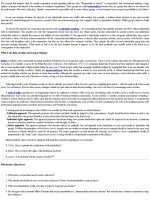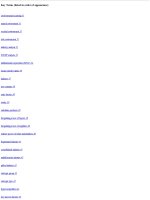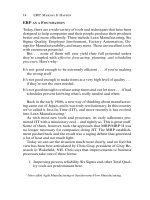The role of contingency factors in the implementation of strategic management accounting (SMA) in private universities colleges (PTSes) under Kopertis Region V of Yogyakarta
Bạn đang xem bản rút gọn của tài liệu. Xem và tải ngay bản đầy đủ của tài liệu tại đây (201.52 KB, 5 trang )
������������������������������������������������������������������������������������������������������������������������������������������������������������������������������������������������������������������������������������������������������������������������������������������������������������������������������������������������������������������������������������������������������������������������������������������������������������������������������������������������������������������������������������������������������������������������������������������������������������������������������������������������������������������������������������������������������������������������������������������������������������������������������������������������������������������������������������������������������������������������������������������������������������������������������������������������������������������������������������������������������������������������������������������������������������������������������������������������������������������������������������������������������������������������������������������������������������������������������������������������������������������������������������������������������������������������������������������������������������������������������������������������������������������������������������������������������������������������������������������������������������������������������������������������������������������������������������������������������������������������������������������������������������������������������������������������������������������������������������������������������������������������������������������������������������������������������������������������������������������������������������������������������������������������������������������������������������������������������������������������������������������������������������������������������������������������������������������������������������������������������������������������������������������������������������������������������������������������������������������������������������������������������������������������������������������������������������������������������������������������������������������������������������������������������������������������������������������������������������������������������������������������������������������������������������������������������������������������������������������������������������������������������������������������������������������������������������������������������������������������������������������������������������������������������������������������������������������������������������������������������������������������������������������������������������������������������������������������������������������������������������������������������������������������������������������������������������������������������������������������������������������������������������������������������������������������������������������������������������������������������������������������������������������������������������������������������������������������������������������������������������������������������������������������������������������������������������������������������������������������������������������������������������������������������������������������������������������������������������������������������������������������������������������������������������������������������������������������������������������������������������������������������������������������������������������������������������������������������������������������������������������������������������������������������������������������������������������������������������������������������������������������������������������������������������������������������������������������������������������������������������������������������������������������������������������������������������������������������������������������������������������������������������������������������������������������������������������������������������������������������������������������������������������������������������������������������������������������������������������������������������������������������������������������������������������������������������������������������������������������������������������������������������������������������������������������������������������������������������������������������������������������������������������������������������������������������������������������������������������������������������������������������������������������������������������������������������������������������������������������������������������������������������������������������������������������������������������������������������������������������������������������������������������������������������������������������������������������������������������������������������������������������������������������������������������������������������������������������������������������������������������������������������������������������������������������������������������������������������������������������������������������������������������������������������������������������������������������������������������������������������������������������������������������������������������������������������������������������������������������������������������������������������������������������������������������������������������������������������������������������������������������������������������������������������������������������������������������������������������������������������������������������������������������������������������������������������������������������������������������������������������������������������������������������������������������������������������������������������������������������������������������������������������������������������������������������������������������������������������������������������������������������������������������������������������������������������������������������������������������������������������������������������������������������������������������������������������������������������������������������������������������������������������������������������������������������������������������������������������������������������������������������������������������������������������������������������������������������������������������������������������������������������������������������������������������������������������������������������������������������������������������������������������������������������������������������������������������������������������������������������������������������������������������������������������������������������������������������������������������������������������������������������������������������������������������������������������������������������������������������������������������������������������������������������������������������������������������������������������������������������������������������������������������������������������������������������������������������������������������������������������������������������������������������������������������������������������������������������������������������������������������������������������������������������������������������������������������������������������������������������������������������������������������������������������������������������������������������������������������������������������������������������������������������������������������������������������������������������������������������������������������������������������������������������������������������������������������������������������������������������������������������������������������������������������������������������������������������������������������������������������������������������������������������������������������������������������������������������������������������������������������������������������������������������������������������������������������������������������������������������������������������������������������������������������������������������������������������������������������������������������������������������������������������������������������������������������������������������������������������������������������������������������������������������������������������������������������������������������������������������������������������������������������������������������������������������������������������������������������������������������������������������������������������������������������������������������������������������������������������������������������������������������������������������������������������������������������������������������������������������������������������������������������������������������������������������������������������������������������������������������������������������������������������������������������������������������������������������������������������������������������������������������������������������������������������������������������������������������������������������������������������������������������������������������������������������������������������������������������������������������������������������������������������������������������������������������������������������������������������������������������������������������������������������������������������������������������������������������������������������������������������������������������������������������������������������������������������������������������������������������������������������������������������������������������������������������������������������������������������������������������������������������������������������������������������������������������������������������������������������������������������������������������������������������������������������������������������������������������������������������������������������������������������������������������������������������������������������������������������������������������������������������������������������������������������������������������������������������������������������������������������������������������������������������������������������������������������������������������������������������������������������������������������������������������������������������������������������������������������������������������������������������������������������������������������������������������������������������������������������������������������������������������������������������������������������������������������������������������������������������������������������������������������������������������������������������������������������������������������������������������������������������������������������������������������������������������������������������������������������������������������������������������������������������������������������������������������������������������������������������������������������������������������������������������������������������������������������������������������������������������������������������������������������������������������������������������������������������������������������������������������������������������������������������������������������������������������������������������������������������������������������������������������������������������������������������������������������������������������������������������������������������������������������������������������������������������������������������������������������������������������������������������������������������������������������������������������������������������������������������������������������������������������������������������������������������������������������������������������������������������������������������������������������������������������������������������������������������������������������������������������������������������al environmental
challenges indicated that the strategic decision
makers have anticipated the future strategic actions,
and the implementation of planned strategies may
have been a slight deviation, and the strategic
planning that is based on the disadvantages of the
planned strategies, such conditions do not influence
the development and implementation of SMA in
PTSes under Kopertis Region V of Yogyakarta.
These
results
support
those
of
[7],[11],[12],[15],[17],[19],[20] studies.
The results of the test of Market Orientation
influence on SMA indicated the significance level
of 0.087 (Table 4), which is higher than 0.05 and
lesser than 0.1 (10%). From this, it can be
concluded that Market Orientation is statistically, at
significance level of 10%, significantly influenced
the SMA in PTSes under Kopertis Region V of
Yogyakarta (Hypothesis 3 is supported). This
would mean that in the development and
implementation of SMA in PTSes under Kopertis
Region V of Yogyakarta, Contingency Factors –
377
Sriyono and Rahmawati / International Journal of Computer Networks and Communications Security, 2 (11), November 2014
Market Orientation have been taken into account by
college management. The results support those of
[17],[19],[20] studies.
Table 1: The Results of Test of Contingency Factors
(Strategic Type, Deliberate Strategy, and Market
Orientation) influence on SMA.
Independent
Variables
Dependent Variables
Standardized
p
Coefficients
0.447 * 0.001
Strategic Type
-----> Strategic Management Accounting (SMA)
Deliberate Strategy
-----> Strategic Management Accounting (SMA)
(0.093)
Market Orientation
-----> Strategic Management Accounting (SMA)
0.232 ** 0.087
R-Square
0,330
F
8.877
Sig.F
0,000
0.438
* significant 5%
** significant 10%
Source: Data are processed
5
CONCLUSION
Based on the data analysis, we draw the
conclusion as follows:
6
1.
Contingency Factor – Strategic Type is
significantly influence the SMA in Private
Colleges (PTSes) under Kopertis Region V
of Yogyakarta
2.
Contingency Factor – Deliberate Strategy
(DS) have no significant influence on SMA
in PTSes under Kopertis Region V of
Yogyakarta.
3.
Contingency Factor – Market Orientation
(MO) is significantly influence (at
significant level of 10%) the Strategic
Management Accounting in PTSes under
Kopertis Region V of Yogyakarta.
REFERENCES
[1] Chenhall, R. H., 2003, Management control
system design within its organizational
context: Findings from contingency-based
research and directions for the future.
Accounting, Organizations and Society 28 (23): 127-168.
[2] Cinquini, Lino and A. Tenucci, 2006, Strategic
Management Accounting: exploring distinctive
features and links with strategy. Munich
Personal Repec Archive.
[3] Cinquini, Lino, and A. Tenucci, 2007, Is The
Adoption
Of
Strategic
Management
Accounting Techniques Really “StrategyDriven”? Evidence from A Survey. Cost and
Performance in Services and Operations Trento
(Italy).
[4] David, Fred, R., 2005, Strategic Management
Concepts and Cases tenth edition. Pearson
Prentice HallTM.
[5] Guilding, Chris and L. McManus, 2002, The
incidence, perceived merit and antecedentsn of
customer accounting an exploratory note.
Accounting, Organizations and Society.
[6] Haberberg, Adrian and Alison Rieple, 2008.
“What is Strategic Management dalam
Strategic
Management:
Theory
and
Application”, Oxford: Oxford University Press
[7] Haldma, Toomas and Kertu Laats, 2002,
Contingencies Influencing the Management
Accounting
Practices
of
Estonian
Manufacturing
Companies.
Management
Accounting Research, Vol. 13, No. 4.
[8] Hair F. H.; E. A. Anderson; R. L. Tathan, and
W. C.
Black, 2000, Multivariate Data
Analysis, Macmillan Publishing Company,
New York.
[9] Hyvönen,
Johanna.,
2008,
Linking
Management Accounting And Control
Systems, Strategy, Information Technology,
Manufacturing
Technology
And
Organizational Performance Of The Firm In
Contingency
Framework.
Academic
dissertation to be presented, with the assent of
the Faculty of Economics and Business
Administration of the University of Oulu, for
public defence in Auditorium TA105,
Linnanmaa, on February 8th.
[10] Islam, Jesmin and Hui H., 2012, A review of
literature on contingency theory in managerial
accounting. African Journal of Business
Management. Vol. 6(15.
[11] Meznar, M. B. and Julius H. J. Jr., 2005,
Business & Society Business-Government
Relations With in a Contingency Theory
Framework: Strategy, Structure, Fit, and
Performance. Business Society; 44; 119
[12] Mia, L and B. Clarke, 1999, Market
Competition,
Management
Accounting
Systems and Business Unit Performance.
Management Accounting Research. Vol.10.
137-158
[13] Mintzberg, H. and Water J. A., 1985, Of
Strategies, Deliberate and Emergent. Strategic
Management Journal. No 6.
[14] Narver, John C. and S. F. Slater, 1990, The
Effect of Market Orientation on Business
Profitability, Journal of Marketing, October, p.
20-35.
[15] Noordin, Raman, and Y. Zainuddin, M. Tayles,
2009, Strategic Management Accounting
378
Sriyono and Rahmawati / International Journal of Computer Networks and Communications Security, 2 (11), November 2014
Information Elements: Malaysian Evidence.
Asia-Pacific Management Accounting Journal.
Vol. 4. Issue 1, 17-34.
[16] Otley, David. T., 1980, The Contingency
Theory
of
Management
Accounting:
Achievement and Prognosis. Accounting
Organization and Society. Vol. 5.
[17] Roslender, Robin and Susan J. H., 2003, In
Search Of Strategic Management Accounting:
Theoretical and Field Study Perspectives.
Management Accounting Research.
[18] Simmonds, K., 1981, Strategic Management
Accounting. Management Accounting, 59.
[19] Simon, Cadez, 2007, A Configuration Form Of
Fit In Management Accounting Contingency
Theory: An Empirical Investigation. The
Business Review, Cambridge. ABI/INFORM
Research.
[20] Simon, Cadez and Guilding C., 2008, Strategy
and Strategic Management Accounting: An
Investigation of Organizational Configurations.
Manchester Business School Research.
[21] Simons, R., 1987, Accounting control systems
and business strategy: an empirical analysis.
Accounting, Organizations and Society, 12,
357-374.
[22] Smith, Kim Langfield, 2008, Strategic
management accounting: how far have we
come in 25 years? Accounting, Auditing &
Accountability Journal. Vol. 21 Iss: 2. p. 204 –
228.









